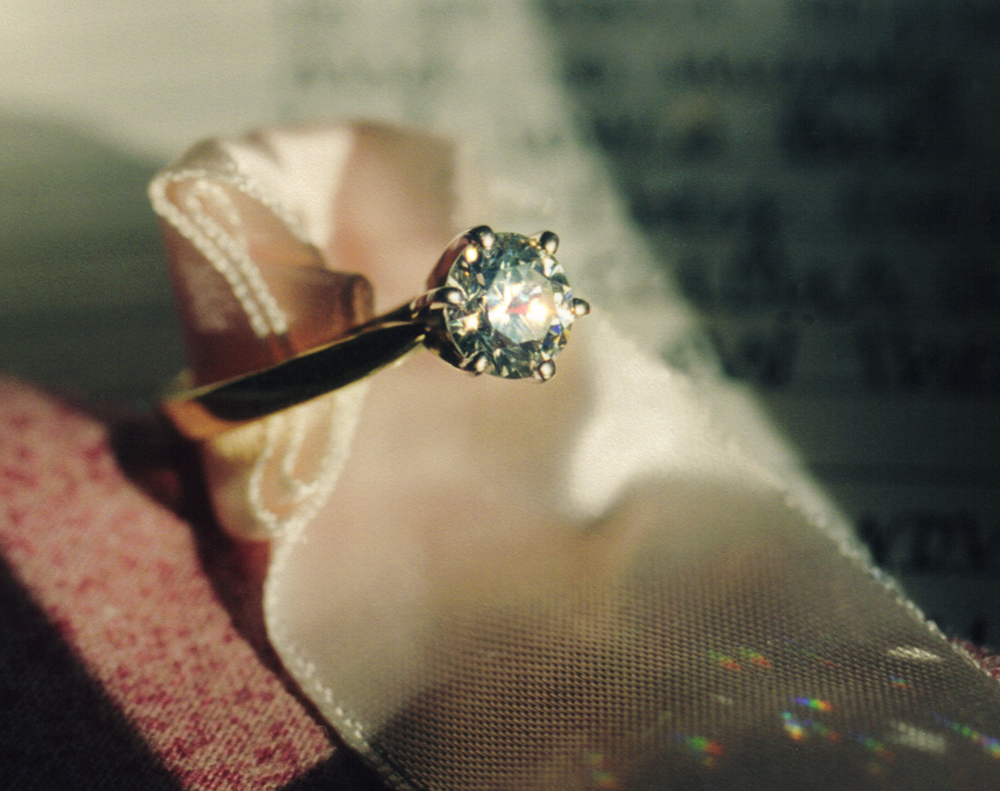Monday, June 22, 2020
THE RING WAS A GIFT IN CONTEMPLATION OF MARRIAGE
Rambod v Tazeh, 2020 NY Slip Op 03382, Decided on June 17, 2020 ,Appellate Division, Second Department;
"The plaintiff purchased a diamond ring for the defendant soon after they became engaged. Thereafter, the parties terminated their relationship and cancelled the wedding. They then had a number of conversations about various sums of monies expended with regard to the wedding as well as the return of various pieces of personal property, including the diamond engagement ring. Ultimately, the plaintiff commenced this action seeking, inter alia, the return of the ring. The defendant counterclaimed, seeking a determination that she was entitled to retain the ring as an irrevocable inter vivos gift, as well as an award of money damages for unjust enrichment and unreimbursed expenses paid in contemplation of marriage.
The plaintiff moved, inter alia, for summary judgment on the cause of action for the return of the ring, arguing that the ring was given solely in contemplation of marriage. The defendant opposed the motion and cross-moved, among other things, for summary judgment on her counterclaims or, in the alternative, to compel the plaintiff to comply with outstanding discovery demands. The Supreme Court granted that branch of the plaintiff's motion and denied both parties' remaining requests. The defendant appeals.
As a general matter, a party not under any impediment to marry may maintain an action to recover property, such as an engagement ring, given in contemplation of marriage where the contemplated marriage does not come to pass (see Civil Rights Law § 80-b; see also Gaden v Gaden, 29 NY2d 80, 85; Lipschutz v Kiderman, 76 AD3d 178, 183). Here, the plaintiff established his prima facie entitlement to summary judgment on the cause of action for the return of the ring by establishing that he gave the ring to the defendant in contemplation of their marriage, and thus, he [*2]was entitled to its return at the time of the termination of their engagement (see Becker v Mix, 279 AD2d 773, 774).
In opposition, the defendant failed to raise a triable issue of fact. Although the defendant maintained that the plaintiff made an inter vivos gift of the ring to her after the termination of their engagement, the evidence she submitted failed to support this assertion. A valid inter vivos gift requires proof, by clear and convincing evidence, of "the intent on the part of the donor to make a present transfer; delivery of the gift, either actual or constructive to the donee; and acceptance by the donee" (Gruen v Gruen, 68 NY2d 48, 53). Here, the text messages upon which the defendant relied did not clearly demonstrate a donative intent on the part of the plaintiff with respect to the ring, nor did they establish an acceptance of the ring as a gift by the defendant. Accordingly, we agree with the Supreme Court's determination directing the return of the ring to the plaintiff."
Labels:
Engagement,
Gifts
Subscribe to:
Post Comments (Atom)








No comments:
Post a Comment
Note: Only a member of this blog may post a comment.